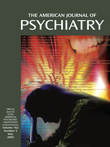To the Editor: Jean-Pierre Lépine, M.D., and his colleagues
(1) evaluated the efficacy of sertraline for the prophylactic treatment of recurrent depressive disorder. We read this double-blind, randomized study with great interest and wish to raise some concerns about the methodological issues.
The use of placebo arms in randomized, controlled trials remains a controversial issue. It has been criticized on ethical grounds. In this context, the Declaration of Helsinki demands that individual patients in a study “be assured of the best proven diagnostic and therapeutic method,” even in a control group
(2). This statement clearly discards the use of a placebo as a control when a “proven” treatment exists.
In this trial, the way the authors tried to establish that sertraline is more effective than placebo is misleading. Even if sertraline is worse than an existing treatment, it may still be “effective” in that it is better than no treatment (placebo). In this regard, Hill
(3) pointed out that the essential medical question at issue is how the new treatment compares with the old one, not whether the new treatment is better than nothing. Similarly, Cochrane
(4) stated that no new treatment should be introduced into medicine unless it has been shown in randomized, controlled trials to be superior to existing treatments or equivalent to existing treatment but cheaper or safer.
As there are drugs with proven efficacy for recurrent depressive disorders, such as lithium, we are keen to know why the authors did not try to compare the efficacy of sertraline with existing drugs. It appears that the authors were keen to reflect a drug-specific effect rather than demonstrating its relative efficacy. As readers, we would like to know why the authors carried out such a long placebo phase (2 months). The patients were left without any medication for 2 months, and during this phase, all the potential patients who were more likely to have relapsed were dropped from the study. Sixty-one subjects (16%) discontinued treating during this phase. It clearly raised doubts as to whether the authors introduced bias at this stage by using an open placebo arm for 2 months. Additionally, the authors restricted the inclusion criteria and excluded depressed patients who had anxiety. However, in day-to-day clinical practice, we have a large proportion of patients who have depression with anxiety. The results of this study may not be applied to this group of patients. In light of these issues, it will be unreasonable to conclude that sertraline is significantly effective in the preventive recurrence of depression compared to placebo.

